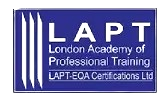Home » ISTQB® Advanced Test Analyst
ISTQB Advanced Test Analyst
Length
3 days
Price
$2699
Cities
Melbourne, Sydney, Brisbane, Adelaide, Canberra, Perth
Why Choose This Course
The ISTQB Advanced Test Analyst course is designed for professionals who want to strengthen their understanding of advanced testing concepts and techniques. It focuses on applying structured approaches to testing complex systems, ensuring quality and reliability throughout the software development lifecycle. Participants will explore topics such as risk-based testing, test design strategies, and defect analysis, all of which are essential for delivering high-quality software solutions.
This course is highly relevant for those working in dynamic environments where software quality plays a critical role in business success. By learning advanced methods for functional and non-functional testing, participants gain the ability to identify potential risks early and implement effective test plans. The training also covers collaboration with stakeholders, enabling testers to communicate findings clearly and contribute to informed decision-making processes. These skills are increasingly valued in industries that rely on robust software systems, including finance, healthcare, and technology.
Completing the ISTQB Advanced Test Analyst course provides learners with practical knowledge that can be applied immediately in real-world projects. It supports career growth by preparing participants for senior testing roles and enhancing their ability to manage complex testing scenarios. The ISTQB Advanced Test Analyst certification training course is available in Melbourne, Sydney, Brisbane, Adelaide, Perth, and Canberra, in-house and live virtual online.
Request Course Information
Prerequisites
- Candidates wishing to take the ISTQB Advanced Test Analyst course must hold the ISTQB Foundation Certificate and have at least 2 years of practical testing experience.
Exam
- Candidates can achieve this certification by passing the following exam(s).
- ISTQB Advanced Test Analyst
- The certification exam can be registered and attempted within 3 months of course/module completion at our training centre on weekdays during normal business hours (excludes public holidays)
Books
- Course material for ISTQB Advanced Test Analyst provided
Delivery
- Instructor-led Classroom Training at our premises
- Live Virtual Online Training attend in real-time from anywhere
- In-House Training at your premises (4+ participants)
Skills Gained
- Describe the responsibilities of the test analyst in all aspects of test management.
- Understand the involvement of test analysts in the different software development life cycles
- Use test checklists to analyse requirement specifications, use cases, or user stories and identify problems.
- Participate in risk management activities
- Perform appropriate test analysis and design tasks based on the project description and the software development life cycle used.
- Recall the main test analysis and design activities.
- Recall the main components of test implementation and execution.
- Identify the steps and considerations to be taken when executing tests.
- Explain the use of testing tools and understand the importance of developing and implementing a defect classification scheme
- Understand the key components of exit criteria evaluation, reporting, and test closure.
- Write test cases using specification-based methods to achieve a specified level of coverage.
- Describe defect and experience-based methods
- Identify and apply appropriate test methods to achieve defined objectives
- Describe appropriate methods to test quality attributes for business domain testing.
Audience
- Experienced test analysts looking to improve their practical testing skills.
- Test managers who need a better understanding of advanced test design skills.
- Testers who want to achieve a higher level of accreditation to gain recognition among employers, clients, and peers.
Price
| Category | Full-Time (Weekdays) | Part-Time (Weeknights) | Part-Time (Weekends) |
|---|---|---|---|
| Days | Monday to Wednesday | Mondays and Tuesdays | Saturdays only |
| Time | 9:30 am to 5:00 pm | 6:00 pm to 9:00 pm | 10:00 am to 5:00 pm |
| Duration | 3 days | 3 weeks | 3 weeks |
| Price | $2699 | $2699 | $2699 |
Outline
- Test Management: Responsibilities for the Test Analyst
- Reviews
- Test Analysis and Design
- Test Implementation and Execution
- Defect Management
- Evaluating Exit Criteria, Reporting and Test Closure
- Specification-based Techniques
- Defect-based Techniques
- Experienced-based Techniques
- Applying Techniques
- Testing Software Quality Characteristics
Terms & Conditions
The supply of this course is governed by our terms and conditions. Please read them carefully before enrolling, as enrolment is conditional on acceptance of these terms and conditions. Proposed course dates are given, course runs subject to availability and minimum registrations.
Frequently Asked Questions (FAQ's)
What does ISTQB Advanced Test Analyst (CTAL‑TA) cover?
Who should take CTAL‑TA?
How is CTAL‑TA different from Advanced Technical Test Analyst?
Our Partnership
Reliable certification testing is vital for validating professional skills in today’s tech-driven world. As a Pearson VUE Authorised Centre, we provide a secure environment for globally recognised IT exams. This partnership ensures convenient access to certifications with the highest standards of integrity and accuracy.
$95,000
Average annual salary for advanced software testing professionals in Australia.
72%
Employers prefer or require ISTQB Advanced certification for senior QA roles.
7.8%
Year-on-year growth in job opportunities for advanced test analysts.
150,000+
Active ISTQB Advanced-certified professionals worldwide.
3,800+
Australian companies employ ISTQB Advanced-certified testing staff.
96%
Average student satisfaction rate for ISTQB Advanced training programs.
Our Accreditations















